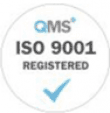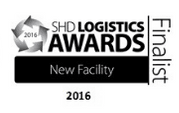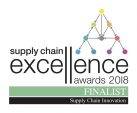Navigating The 'New Normal'
Any crises that arise from issues outside of an organization’s control create problems that have to be solved right now. They also provide the opportunity to reassess current and future operations. There is scope for us to dig deep and consider more efficient use of our resources and become more productive, even in times of business unusual. It is even possible to innovate and reduce costs in times of uncertainty.
In the short-to-medium term
Business continuity is the current focus; we have to meet the most urgent needs of our employees, customers, suppliers and shareholders, probably in that order.
Employees
Staffing levels and the appropriate allocation of labour resources will continue to be a challenge but must remain a priority. Let’s leverage HR expertise to maintain employees’ physical and mental well-being which is the first order of business. We can apply more flexible working arrangements and make contingency plans for staff absences. The immediate aim is to improve productivity among existing staff and fill essential skills gaps while keeping our businesses afloat.
Logistics
Fluctuating and erratic customer demand in the retail and FMCG environments, particularly for food and pharmaceuticals, means short-term changes to how logistics resources are deployed. This includes reassigning staff, rearranging delivery times and locations, routes and carriers to suit changes in both legislation and customer needs. Organizations need to make the best use of their logistics data, through constant analyses, to support decisions about resource allocation.
Customers
It is the responsibility of manufacturers and distributors to be fully aware of the proper pricing of essential goods. Companies that attempt to make excess profit will be penalized. Applying best practice in corporate social responsibility issues, including the impact on the environment, should not stop. Customers still care about sustainability, even when their routines are disturbed.
Suppliers
Focusing on managing supply chain risk should not be a new concept. In the current climate, it is recommended that a team be mobilised to identify specific inventory risks and anticipated shortages as well as finding alternative sources of supply. This is the time to develop more open lines of communication with key suppliers and to review contracts to identify areas of weakness. Let’s make the best use of available technologies to collaborate with our suppliers.
In the longer term
After activities start to normalise, companies need to reflect on how well they have been able to navigate the previous 3 – 6 months.
- How agile were we when we needed to be?
- Did we act appropriately, at the right time and in the right way?
- How could we have reacted better?
Companies that are resilient when unexpected events occur will have the competitive advantage.
Building business resilience
Scenario planning is a disciplined method that can be used to consider possible future states. Three or four scenarios enable organisations to see the bigger picture and make effective trade-off decisions relating to inventory levels, customer demand, the competition, product obsolescence etc. Each scenario should contain enough detail to assess the likelihood of success or failure of different strategic options. Simulations can be run to identify conflicting objectives and areas of opportunity.
Assessing supplier risk
EY, the global consultancy, recommends the following:
- Conduct end-to-end supply chain risk assessments and prioritize critical focus
- Develop a robust risk management process and diversify supplier network
- Evaluate and adjust procurement category strategic priorities
- Invest in more collaborative and agile planning and fulfilment capabilities
Harnessing technology
The effective use of technology to manage raw data to create information can radically improve visibility across the supply chain. Complexity in logistics planning can be simplified using affordable software solutions to aid scheduling, route planning and safety and security in the absence of enterprise-wide or warehouse management systems.
Collaborative relationships
Organisations need to rethink the way their employees communicate with each other and customers and suppliers – within the office, regionally and globally. Collaboration tools equip teams to work remotely and promote more flexible ways of working.
When there is stress within a supply chain, accurate and reliable real-time data promotes trust in relationships with critical suppliers. Shared visibility into mutual goals builds organisational resilience.
The Supply Chain Consulting Group is providing practical and much needed support to businesses throughout the UK over the coming weeks and months through our analysts and operations planning team.
Our team’s expertise includes support to mainly UK Retailers and FMCG suppliers as well as businesses across a variety of sectors, with Supply Chain and Logistics operational planning such as:
- Analysis of logistics data to support resource allocation and manage short-term changes to how network resources are deployed.
- Transport modelling (using PTV Route Optimiser as well as proprietary tools) and re-planning transport routes to mitigate the impact of changes in delivery points, demand patterns, SKU range (reducing to essentials) and stock availability issues.
- Identifying and implementing required changes to warehouse process, layout, systems, equipment and resources.
Dealing with these issues highlighted above will require operating more efficiently (i.e. getting more out of fewer staff) and we can mitigate some staff and skills shortages that you may be experiencing.
One example of how we are helping our customers with changing customer delivery models is the recent development and implementation of operational tools to support delivery slot allocation for multi-temperature grocery deliveries, as well as maximising the amount of delivery slots available to on-line customers. This has become more essential during the current surge in demand for online shopping and home delivery for groceries.
Rest assured that we have implemented our own business continuity plan including remote home working etc. and remain at full capacity.
For further information visit sccgltd.com or call our head office on +44 (0)1926 430 883














